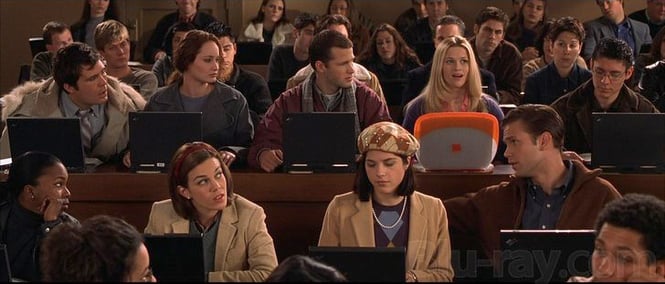
It might surprise you to know that Cambridge Coaching’s resident law-school blogger is not, and has never been, a lawyer. But, it’s true! I graduated from Harvard Law School last year, and am now a high-school math teacher in DC. I was a math teacher before law school and plan to stay a math teacher – law degree, bar admission, and all.
When people find this out, I’m inevitably asked: do I regret going to law school? I always answer that I don’t. Of course, it was a major investment of time and money – which people in other circumstances may not be prepared or able to make – for little material benefit. I don’t have a fancy high-paying legal job and I probably never will. But there were all sorts of other, less tangible benefits.
So, for all those readers who might feel interested in law school but uninterested in actually lawyering, or who might be teachers considering law school, or even for law students wondering what they’re still doing in law school: here’s what I think I got.
The Ability to Think Analytically: It’s almost a truism that law school teaches you to “think like a lawyer.” And, it’s true – but what does it mean, and how does it apply to teaching?
First, lawyers think in a very precise way. One of the key things a lawyer needs to do is take an infinitely complex real-world situation, find the legal and factual ambiguities, and distill the controversies in the case down to very specific questions. That’s a skill that teachers use too: taking an entire subject, concept, or skill, and figuring out exactly what skills need to be developed, or what misunderstandings can arise. Lawyers are experts at specificity, and good teachers are too.
Second, lawyers think holistically. A legal case can involve all sorts of facts and arguments, which can pull in opposite directions and become extremely confusing if not presented in a clear and organized fashion. Lawyers need to piece together disparate parts into a single, compelling presentation. Teachers do too! Planning a coherent unit, or lesson, or year – and putting the pieces of a complex project together – sometimes feels easy compared to a legal brief.
A Sense of Career Possibilities: When I was in college, I was living in a bubble which often felt disconnected from the rest of the world around me. When I was working before law school, I was so busy that I rarely had time to explore. It’s hard to see the huge variety of professional choices and options that exist out there.
Law school, on the other hand, is almost designed for that type of exposure. The 1L year can feel very limiting, with the overwhelming challenge of adapting to a new way of learning and thinking (see above), but 2L and 3L years abound with options: clinics, internships, externships, student practice organizations, etc. Lawyers do all sorts of things in all sorts of settings, and law school gives you the chance to try them all. (This is part of the reason why law school continues to be 3 years, instead of 2, but that’s a topic for another time.) I didn’t get to try much teaching, of course. But as a teacher I now have some understanding of education law, family law, criminal law, and other types of laws that affect my students – and the world – on a daily basis. That’s powerful. And I can always inform my ambitious students about what law is like!
Confidence and Character: Law school is challenging, and I know I learned a great deal just by toughing it out. I (mostly) thought hard for (much of) three years, dealt with the challenges of cold calls and oral arguments and issue spotters, put myself in lots of intimidating legal settings… and survived! Even if it was sometimes hard to see in the midst of those experiences, I was developing a lot of intellectual and emotional capital during my years at Harvard. It’s not to say that I have a tremendous amount of either confidence or character – I know I’m still lacking in both. But law school helped me develop personally, in ways that I am still learning.
Relationships: Before I started at Harvard, I’d heard stereotypes are that everyone in law school – peers and professors both – would be competitive, driven to extremes, and solely out for themselves. It’s true that law school can sometimes bring out people’s Type-A sides… but in general, and very fortunately, I rarely found these stereotypes to be the case. The people I met in law school were almost universally kind, intelligent, and interesting human beings – exactly the type of person you’d want to be friends with. When they weren’t too busy studying for exams or searching for jobs (which happens), the people I met in law school were, and remain, great friends and resources for me. Whether I ever end up working in the law or not, I know I’ll benefit tremendously from this.
Final Words: I took a lot from law school – not least the realization that I wanted to be a teacher! Is it worth the investment of time and money? I can’t say for everyone: I was fortunate to have the time, and financial support from my family. Ultimately, depending on your circumstances, law school can be a great three years – whether you want to become an attorney, a teacher, or anything else!
For more reading on law school, check out these posts: 6 Essential Law School Cases: a 1L's Guide, What is Constitutional Law: a 1L's Guide, 4 Tips for a Fantastic 1L Summer. Looking to work with a law school tutor? Feel free to get in touch! Cambridge Coaching offers private in-person legal studies tutoring in New York City and Boston, and online tutoring around the world.


Comments